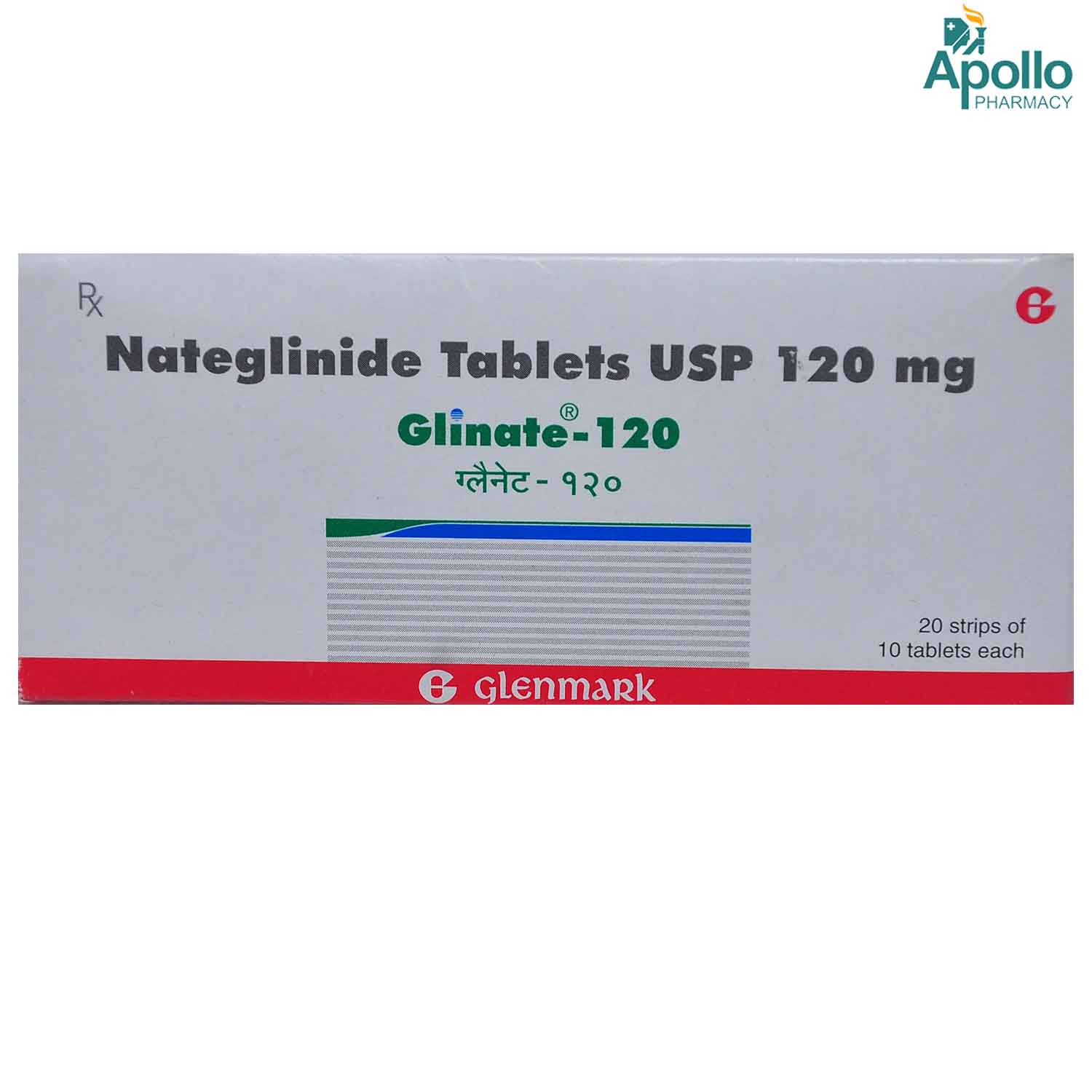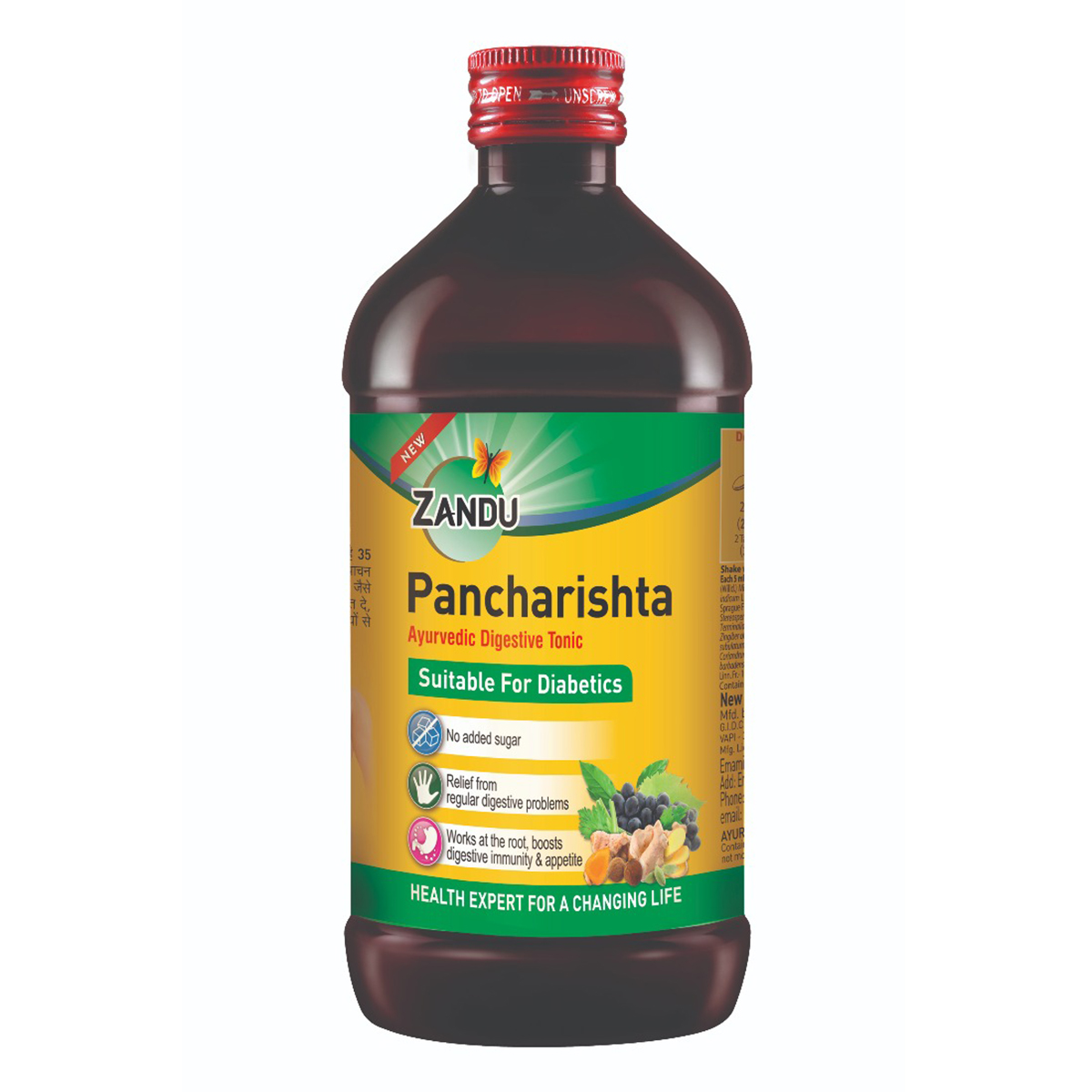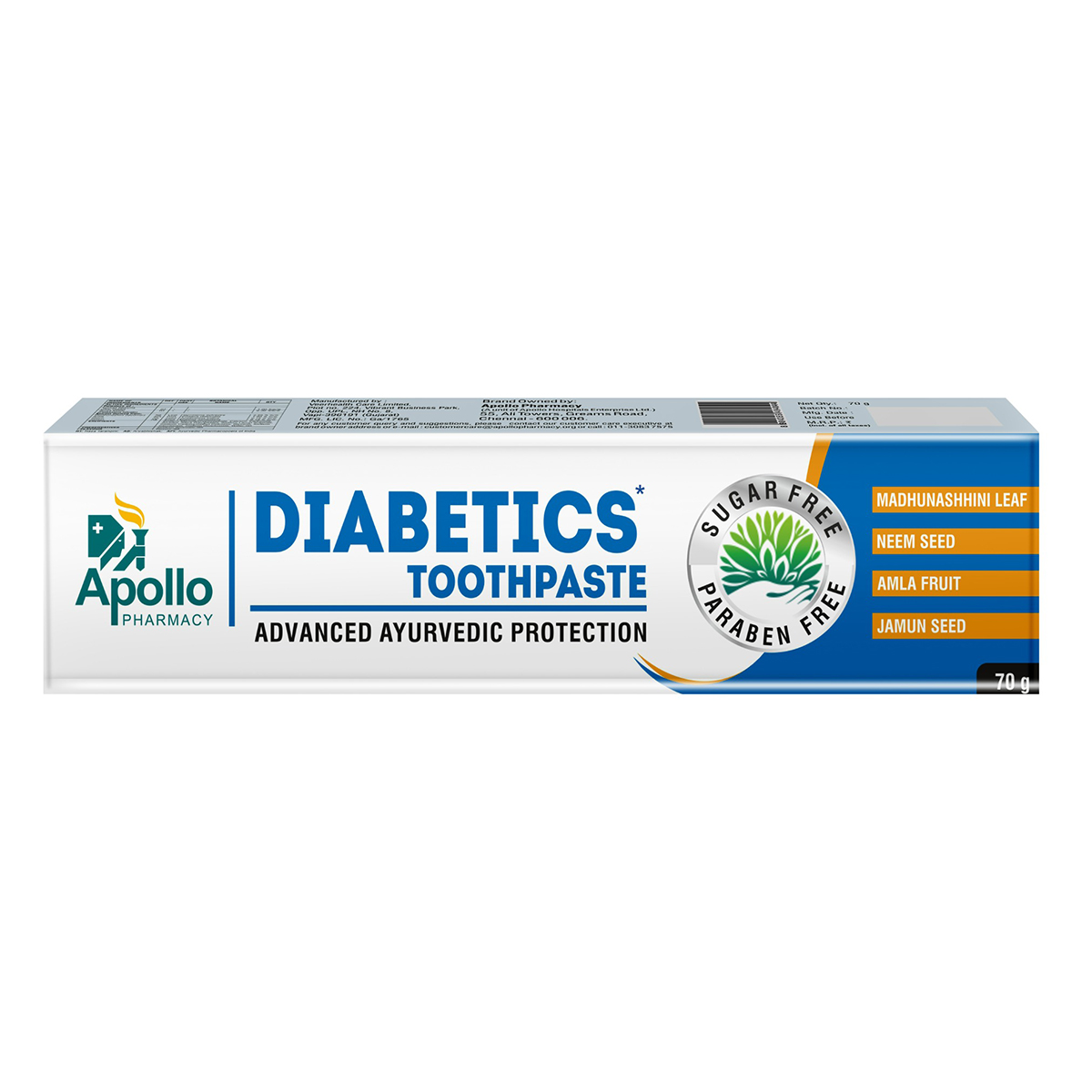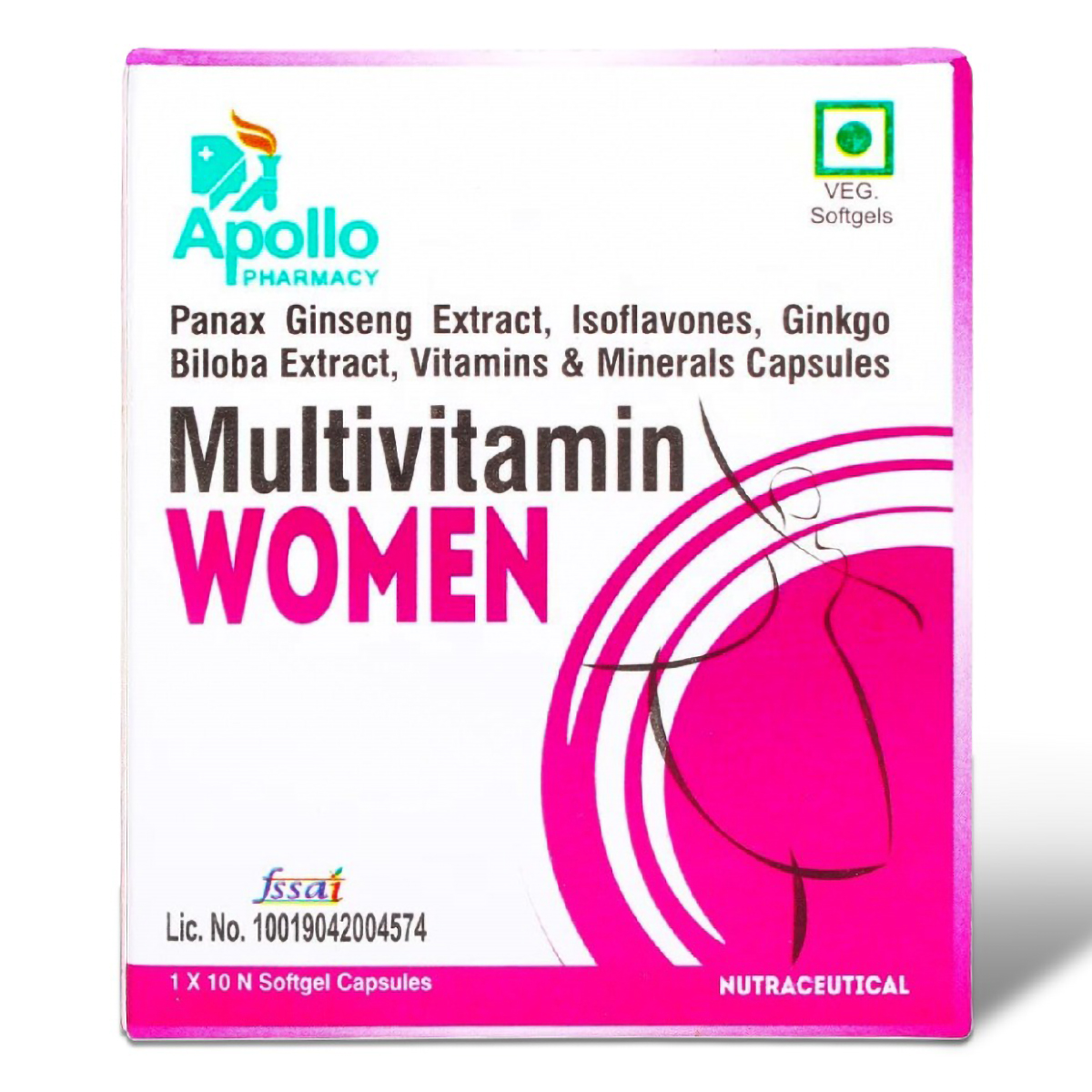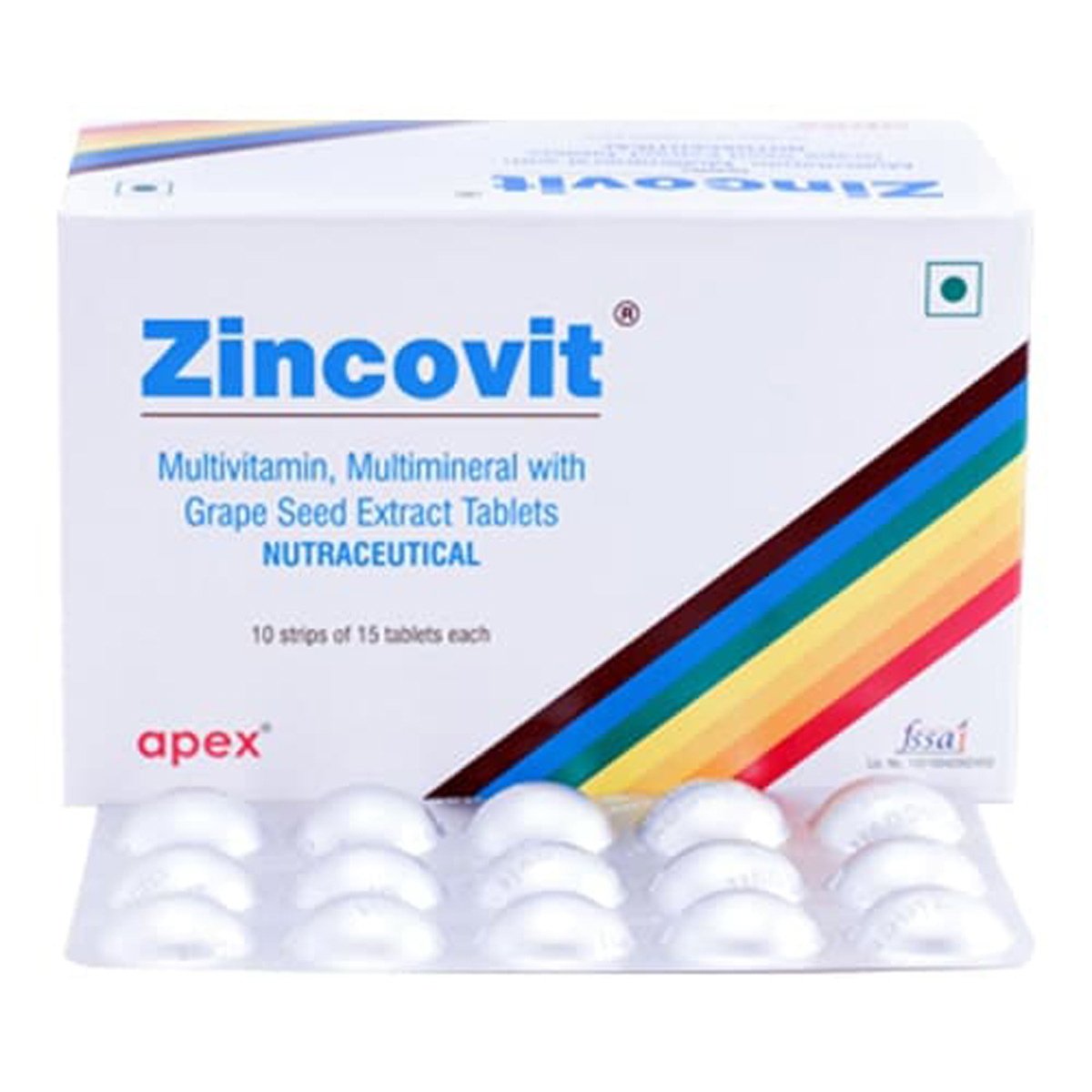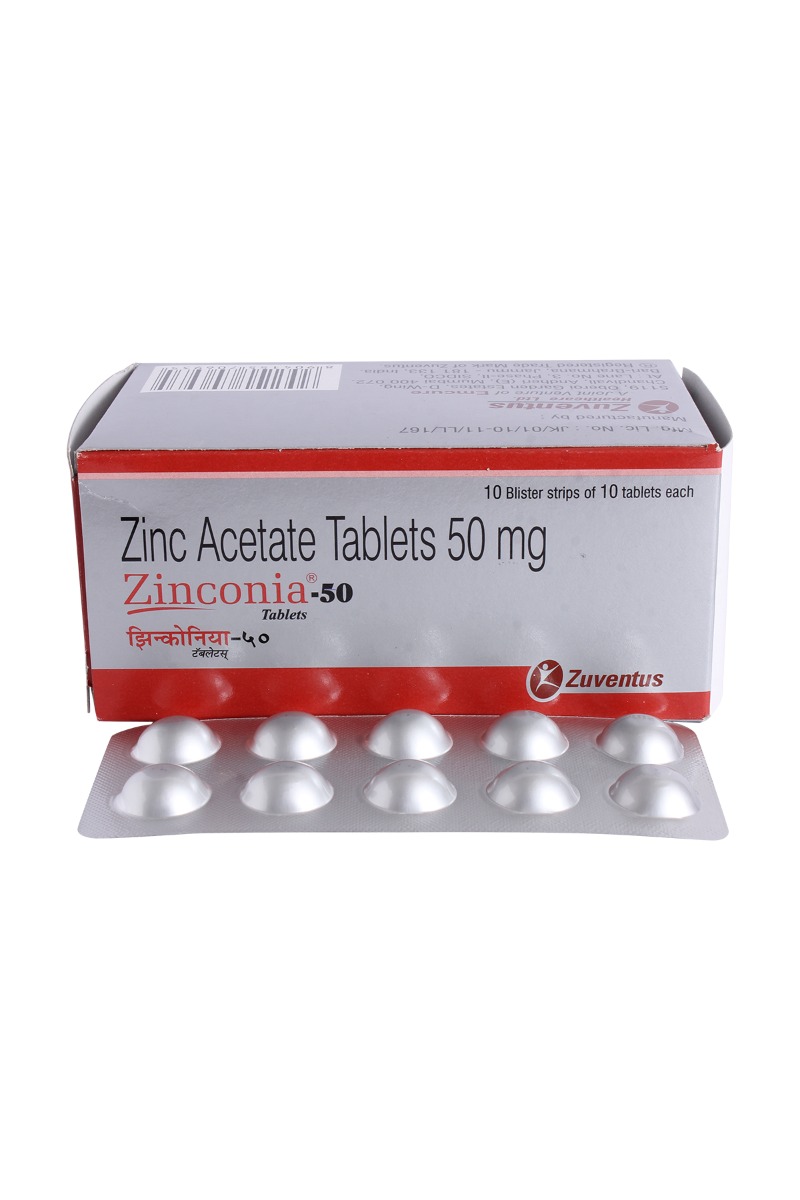GLINATE TM 120MG TABLET

MRP ₹172
(Inclusive of all Taxes)
₹25.8 Cashback (15%)
know your delivery time
Provide Delivery Location
Composition :
Manufacturer/Marketer :
Consume Type :
Expires on or after :
Return Policy :

Secure Payment

Trusted by 8 Crore Indians

Genuine Products
Therapeutic Class
Country of origin
Manufacturer/Marketer address
FAQs
GLINATE TM 120MG TABLET works by increasing insulin production by stimulating insulin secretion from the pancrea's beta cells, thereby reducing high blood glucose (sugar) levels.
GLINATE TM 120MG TABLET may sometimes lower the blood glucose levels more than normal, leading to hypoglycemia. Regularly monitor your blood sugar levels while taking GLINATE TM 120MG TABLET. Hypoglycemia symptoms include headache, dizziness, drowsiness, faintness, confusion and visual disturbances.
Hypoglycaemia may occur following prolonged or severe exercise, during illness, alcohol consumption, low food intake, or when GLINATE TM 120MG TABLET is taken along with other antidiabetic medicines.
Maintain a healthy diet by regular intake of carbohydrates such as bread and products containing starch and sugar. Eat your meals regularly, and do not exercise heavily for a longer duration with an empty stomach. Try to keep sugar candies. When you feel low blood sugar symptoms like excessive hunger, sweating, feeling tired, dizziness, feeling hungry, feeling shaky and fast heartbeat, immediately take it. This will increase the glucose level (sugar) in your blood, and you will feel normal.
GLINATE TM 120MG TABLET is prescribed for the lifelong or chronic conditions of diabetes. So, please do not stop taking GLINATE TM 120MG TABLET without consulting your doctor on your own as it may cause an increase in blood glucose levels. Continue taking GLINATE TM 120MG TABLET for as long as your doctor has prescribed it to you. Do not be reluctant to speak with your doctor if you experience any difficulty while taking GLINATE TM 120MG TABLET.
If you are going to have a major operation or have recently had a serious infection or illness; in such cases, diabetic control may be lost. Consult your doctor if you have any concerns regarding this; your doctor may ask you to temporarily take insulin instead of GLINATE TM 120MG TABLET to control blood glucose levels.
GLINATE TM 120MG TABLET might sometimes affect laboratory test results. Inform the person performing the tests that you are taking GLINATE TM 120MG TABLET.
Avoid consuming alcohol while taking GLINATE TM 120MG TABLET as it might increase the side-effects of GLINATE TM 120MG TABLET.
Disclaimer
Alcohol
Safe if prescribed
Alcohol may disturb the control of blood sugar level. Alcohol should not be consumed along with GLINATE TM 120MG TABLET as it is known to interact and lead to unpleasant side effects.
Pregnancy
Consult your doctor
Pregnancy Category C: There are no adequate and well-controlled studies in pregnant women. It is unknown whether GLINATE TM 120MG TABLET can cause fetal harm when administered to a pregnant woman. It should not be used in pregnant women.
Breast Feeding
Consult your doctor
Do not take GLINATE TM 120MG TABLET if you are breast-feeding. Not enough scientific data available for GLINATE TM 120MG TABLET, hence it is best to consult a doctor.
Driving
Safe if prescribed
Your driving may be affected if your blood sugar levels are too high or too low. Do not drive or operate machinery if you may experience dizziness or drowsiness.
Liver
Consult your doctor
GLINATE TM 120MG TABLET to be taken with caution, especially if you have a history of liver diseases/conditions. The dose may have to be adjusted by your doctor.
Kidney
Consult your doctor
GLINATE TM 120MG TABLET to be taken with caution, especially if you have a history of Kidney diseases/conditions. The dose may have to be adjusted by your doctor.
Children
Safe if prescribed
GLINATE TM 120MG TABLET is not recommended for use in children and adolescents (below 18 years of age). Safety and effectiveness have not been established in this age group.
Product Substitutes
About GLINATE TM 120MG TABLET
GLINATE TM 120MG TABLET belongs to the class of medications called oral antidiabetics. It is an oral hypoglycaemic (lowering blood sugar) medication intended for people with type 2 diabetes; proper diet and exercise control blood sugar. It is used when diet, exercise, and weight reduction alone have not been found to control blood sugar well enough. Type 2 diabetes is a chronic or lifelong disorder affecting how our body processes glucose. People with type 2 diabetes either do not produce enough insulin or cannot perform their body functions (insulin resistance). Middle-aged or older individuals are most likely to suffer from type 2 diabetes, also known as adult-onset diabetes.
GLINATE TM 120MG TABLET is prescribed alone or combined with other medications to treat type 2 diabetes. GLINATE TM 120MG TABLET lowers blood glucose levels by stimulating the release of insulin from the pancreas.
Take GLINATE TM 120MG TABLET as prescribed by your doctor. Take GLINATE TM 120MG TABLET preferably before meals; its effect may be delayed if it is taken with or after meals. You are advised to take GLINATE TM 120MG TABLET for as long as your doctor has prescribed. You may experience sweating, dizziness, shaking, hunger, tiredness, diarrhoea, and abdominal pain. One may experience these symptoms due to the lack of proper food intake or a high dose of anti-diabetic medicine. If you experience low blood sugar symptoms, eat or drink something containing sugar as advised by your doctor. Most of these side effects of GLINATE TM 120MG TABLET do not require medical attention and gradually resolve over time. However, if the side effects are persistent, reach out to your doctor.
GLINATE TM 120MG TABLET should not be stopped even if you feel better, without consulting your doctor as sugar levels keep changing. If you stop taking GLINATE TM 120MG TABLET abruptly, it may increase your sugar levels. GLINATE TM 120MG TABLET should not be taken if you have type 1 diabetes or severe kidney or liver disease. Do not take GLINATE TM 120MG TABLET if you are pregnant or planning to become pregnant or if you are a breastfeeding women. It is also not recommended for use in children and adolescents (under 18 years of age). Speak to your doctor for information regarding this medicine.
Uses of GLINATE TM 120MG TABLET
Medicinal Benefits Mweb
Key Benefits
GLINATE TM 120MG TABLET belongs to the class of medications called oral antidiabetics. It is an oral hypoglycaemic (lowering of blood sugar) medication intended to use in people with type 2 diabetes; proper diet and exercise to control blood sugar levels in the blood. It is used when diet, exercise, and weight reduction alone have not been found to control blood sugar well enough. GLINATE TM 120MG TABLET is known to lower blood glucose levels by stimulating the release of insulin from the pancreas. GLINATE TM 120MG TABLET has unique pharmacokinetic properties, and it will be absorbed rapidly and extensively from the small intestine after oral administration. It is also effective as a combination therapy with metformin for patients who require therapy to reduce both fasting and postprandial blood sugar (hyperglycemia).
Directions for Use
Side Effects of GLINATE TM 120MG TABLET
- Abdominal pain
- Indigestion
- Diarrhoea
- Nausea
Drug Warnings
GLINATE TM 120MG TABLET should not be taken if you are allergic to GLINATE TM 120MG TABLET or any of its ingredients. Do not take GLINATE TM 120MG TABLET if you are pregnant or breastfeeding women, have type 1 diabetes, or have a severe liver problem. Take GLINATE TM 120MG TABLET with caution if you are over 65 years old, undernourished, or have an underactive pituitary or adrenal gland. Watch carefully if you have any signs of low blood sugar. Avoid drinking alcohol while on this medication, as it affects blood sugar levels. Inform your doctor before taking GLINATE TM 120MG TABLET if you have a severe kidney/liver problem, have recently met with an accident, or have an active infection. GLINATE TM 120MG TABLET is not recommended for children and adolescents (below 18 years of age). Check your blood sugar levels from time to time, as your doctor advises. Do not drive or operate heavy machinery if you have low blood sugar, as your ability to concentrate or react may be reduced in such a case.
Drug-Drug Interactions
Drug-Drug Interactions
Login/Sign Up
Coadministration of Gatifloxacin with Glinate Tm 120mg Tablet may sometimes affect blood glucose levels. Both low blood glucose and, less frequently, high blood glucose have been reported.
How to manage the interaction:
Co-administration of Gatifloxacin with Glinate Tm 120mg Tablet can result in an interaction, but it can be taken if your doctor has advised it. Consult the prescriber if you experience symptoms such as nervousness, confusion, headache, dizziness, drowsiness, tremors, nausea, hunger, weakness, perspiration, palpitation, rapid heartbeat, increased urination, increased thirst, and increased hunger. If you have diabetes and are taking fluoroquinolones, it's important to maintain your blood sugar levels. Do not stop using any medications without talking to a doctor.
Co-administration of Ofloxacin and Glinate Tm 120mg Tablet can sometimes have an effect on blood glucose levels.
How to manage the interaction:
Although combining Ofloxacin and Glinate Tm 120mg Tablet can lead to an interaction, they can be taken on the doctor's advice. If you experience any symptoms of hypoglycemia (headache, dizziness, sleepiness, nervousness, confusion, shaking, nausea, hunger, weakness, sweat, palpitation, and rapid heartbeat) or hyperglycemia (increased thirst, hunger, and urination), consult a doctor. Keep an eye on your blood glucose levels. Do not discontinue any medications without consulting a doctor.
Blood glucose levels can be affected by levofloxacin when taken in conjunction with Glinate Tm 120mg Tablet. They may cause hyperglycemia (high blood glucose) and, less commonly, hypoglycemia (low blood glucose).
How to manage the interaction:
Although concomitant administration of levofloxacin with Glinate Tm 120mg Tablet can result in an interaction, they can be taken if a doctor has advised it. Inform doctor if you experience hypoglycemia (low blood glucose) or hyperglycemia (high blood glucose), or if you have a lack of blood glucose control. Headache, dizziness, sleepiness, anxiety, confusion, a shaking sensation, nausea, hunger, weakness, sweat, palpitation, and fast pulse are all symptoms of hypoglycemia. Hyperglycemia symptoms may include increased thirst, increased appetite, and increased urine. Do not stop using any medications without talking to a doctor.
Coadministration of Glinate Tm 120mg Tablet with Moxifloxacin can affect blood glucose levels.
How to manage the interaction:
There may be a possibility of interaction between Moxifloxacin and Glinate Tm 120mg Tablet, but it can be taken if prescribed by a doctor. Consult a doctor if you experience headache, dizziness, rapid heartbeat, increased thirst, and increased urination contact a doctor. Do not stop using any medications without a doctor's advice.
Coadministration of Glinate Tm 120mg Tablet with ciprofloxacin can affect blood glucose levels. Both hyperglycemia (high blood glucose) and, less frequently, hypoglycemia (low blood glucose).
How to manage the interaction:
Although taking ciprofloxacin and Glinate Tm 120mg Tablet together can possibly result in an interaction, it can be taken if your doctor has prescribed it. However, tell your doctor if you have hypoglycemia, hyperglycemia, or a decline in blood glucose control. Hypoglycemia can cause headaches, dizziness, sleepiness, anxiety, disorientation, tremors, nausea, hunger, weakness, sweat, palpitations, and a rapid heartbeat. Increased hunger, thirst, and urine are all possible signs of hyperglycemia. It is recommended to maintain blood glucose levels.
Glinate Tm 120mg Tablet with tirzepatide may increase the risk of low blood sugar, necessitating regular monitoring or dose adjustments. Headache, lightheadedness, drowsiness, anxiety, disorientation, trembling, nausea, weakness, sweating, palpitations, and a fast heartbeat are some of the symptoms.
How to manage the interaction:
Consult doctor when experiencing headache, lightheadedness, drowsiness, anxiety, disorientation, trembling, nausea, weakness, sweating, palpitations, and a fast heartbeat are some of the symptoms when co-administering Glinate Tm 120mg Tablet and Tirzepatide.
Drug-Food Interactions
Drug-Food Interactions
Login/Sign Up
Drug-Diseases Interactions
Drug-Diseases Interactions
Login/Sign Up
Drug-Drug Interactions Checker List
- ASPIRIN
- SITAGLIPTIN
- LINAGLIPTIN
- LIRAGLUTIDE
- METOPROLOL
- ALBUTEROL
- FUROSEMIDE
Habit Forming
Diet & Lifestyle Advise
- Fill your half plate with starchy veggies, a quarter with proteins and a quarter with whole grains. Eat at regular intervals. Do not take a long gap between a meal or snack.
- Monitor your blood sugar level regularly, especially when there are lots of fluctuations.
- Invest in at least 150 minutes of moderate-intensity physical activity or one hour and 15 minutes of high-intensity exercise weekly.
- Replace refined carbohydrates containing whole-grain foods and increase the intake of fruits, veggies, and other fibre-enriched foods.
- Reduce saturated fat intake (or hidden fats) in food like chips, crisps, pastries, biscuits and samosas. Choose omega-3 fatty acid-containing oils for daily cooking.
- Do not take stress as it may elevate your blood sugar level. You can adopt stress management techniques like mindfulness to control stress-related blood sugar changes.
- Opt for low-fat dairy products (low-fat yoghurt, fat-free milk, cheese, etc.).
- Include foods rich in healthy carbohydrates and fibre, fruits, whole grains, and vegetables in your diet.
- Try eating food at regular intervals. Do not skip meals. Also, try not to overeat.
- Maintain a healthy weight by exercising regularly.
- Rest properly, and avoid stress by doing meditation or yoga.
All Substitutes & Brand Comparisons
RX
Out of StockNatstar 120mg Tablet
Ipca Laboratories Ltd
₹80
(₹7.2 per unit)
53% CHEAPERRX
Out of StockNateron 120mg Tablet
₹97
(₹8.73 per unit)
43% CHEAPERRX
Out of StockGlinate 120 Tablet 10's
Glenmark Pharmaceuticals Ltd
₹188.5
(₹16.97 per unit)
9% COSTLIER

Have a query?
Buy best Diabetics products by
Torrent Pharmaceuticals Ltd
Sun Pharmaceutical Industries Ltd
Eris Life Sciences Ltd
Intas Pharmaceuticals Ltd
Lupin Ltd
Micro Labs Ltd
Mankind Pharma Pvt Ltd
Lloyd Healthcare Pvt Ltd
Alkem Laboratories Ltd
Abbott India Ltd
Glenmark Pharmaceuticals Ltd
Cipla Ltd
Macleods Pharmaceuticals Ltd
Wockhardt Ltd
Dr Reddy's Laboratories Ltd
Primus Remedies Pvt Ltd
USV Pvt Ltd
Aristo Pharmaceuticals Pvt Ltd
Emcure Pharmaceuticals Ltd
Alembic Pharmaceuticals Ltd
Ipca Laboratories Ltd
La Renon Healthcare Pvt Ltd
Ajanta Pharma Ltd
Medley Pharmaceuticals Ltd
East West Pharma India Pvt Ltd
Elbrit Life Sciences Pvt Ltd
Corona Remedies Pvt Ltd
Hbc Life Sciences Pvt Ltd
Sinsan Pharmaceuticals Pvt Ltd
Ranmarc Labs
Mitoch Pharma Pvt Ltd
Zydus Healthcare Ltd
Sanofi India Ltd
Akumentis Healthcare Ltd
Fusion Health Care Pvt Ltd
Unison Pharmaceuticals Pvt Ltd
Jubilant Lifesciences Ltd
Novo Nordisk India Pvt Ltd
Tas Med India Pvt Ltd
Blue Cross Laboratories Pvt Ltd
Msn Laboratories Pvt Ltd
Eswar Therapeutics Pvt Ltd
Indoco Remedies Ltd
Q Check Pharmaceuticals
Alteus Biogenics Pvt Ltd
Anthem Bio Pharma
Franco Indian Pharmaceuticals Pvt Ltd
Systopic Laboratories Pvt Ltd
Panacea Biotec Ltd
Zydus Cadila
Biocon Ltd
Edoc Life Sciences Pvt Ltd
Koye Pharmaceuticals Pvt Ltd
Arkas Pharma Pvt Ltd
Diacardus Pharmacy Pvt Ltd
Elinor Pharmaceuticals (P) Ltd
Remedy Life Sciences Pvt Ltd
Saan Labs
Talent India Pvt Ltd
Jarun Pharmaceuticals Pvt Ltd
Capital Pharma
Shrrishti Health Care Products Pvt Ltd
FDC Ltd
Leeford Healthcare Ltd
Nirvana India Pvt Ltd
Elder Pharmaceuticals Ltd
Eli Lilly and Company (India) Pvt Ltd
Glynis Pharmaceuticals Pvt Ltd
Zuventus Healthcare Ltd
Arrient Healthcare Pvt Ltd
Cadomed Pharmaceuticals India Pvt Ltd
Orris Pharmaceuticals
Akesiss Pharma Pvt Ltd
Bal Pharma Ltd
Biochem Pharmaceutical Industries Ltd
Knoll Healthcare Pvt Ltd
Lippon Pharma Pvt Ltd
Morepen Laboratories Ltd
Neucure Lifesciences Pvt Ltd
Opsis Care Lifesciences Pvt Ltd
Wallace Pharmaceuticals Pvt Ltd
Acmedix Pharma Llp
Converge Biotech Pvt Ltd
Erinyle Pharma
Indiabulls Pharmaceuticals Pvt Ltd
Ozone Pharmaceuticals Ltd
Retra Life Science Pvt Ltd
Alvio Pharmaceuticals Pvt Ltd
Geneaid Pharmaceuticals
Heal (India) Laboratories Pvt Ltd
Olcare Laboratories Pvt Ltd
Vasu Organics Pvt Ltd
Kotak Life Sciences
Lakshya Life Sciences Pvt Ltd
Proqol Health Care Pvt Ltd
Sanz Pharmaceuticals
Daylon healthcare pvt Ltd
Mcronus Lifescience Pvt Ltd
Natco Pharma Ltd
Orsim Pharma
Frequently Bought Together
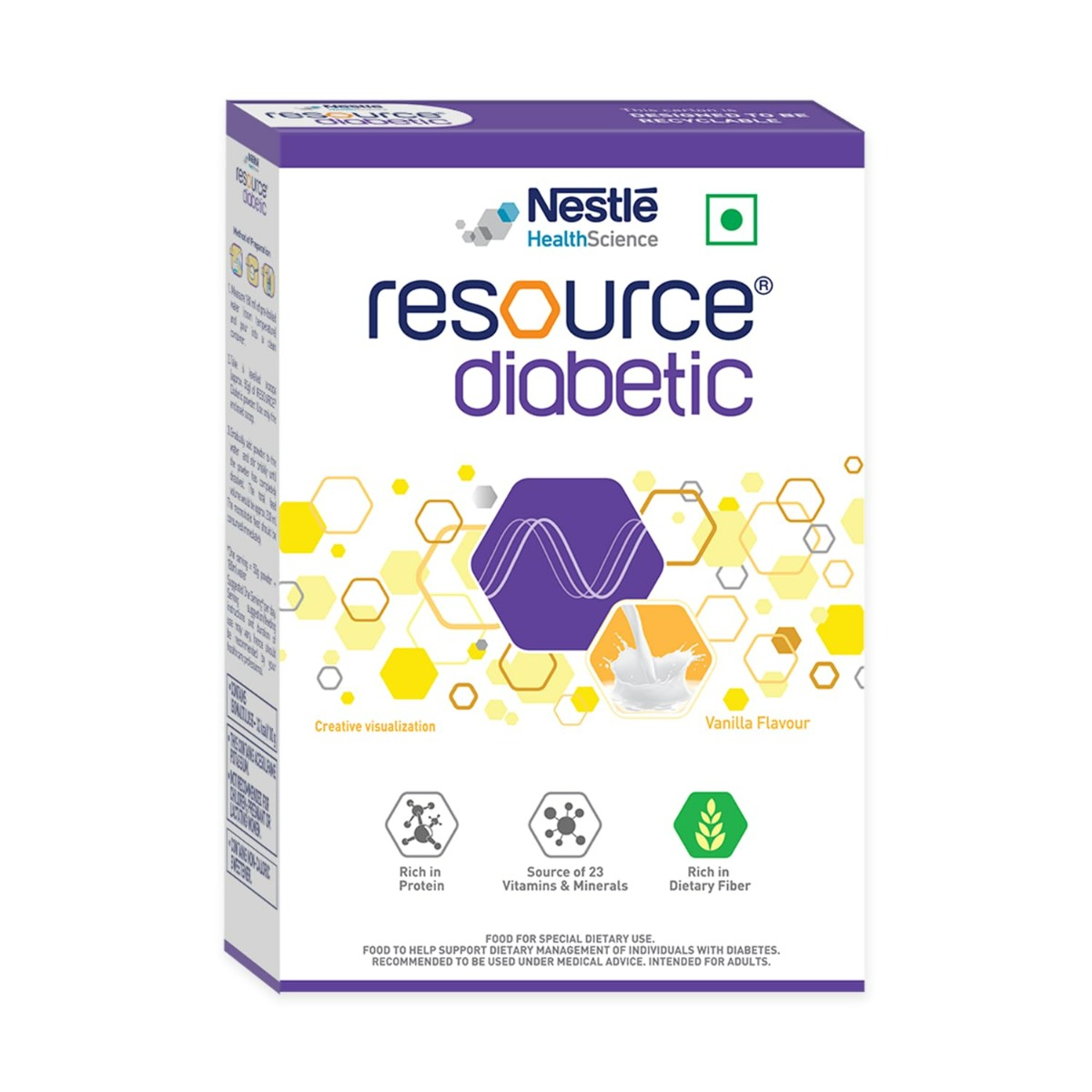
Nestle Resource Diabetic Vanilla Flavour Powder, 400 gm
400 gm Powder
Nestle India Ltd
₹758.6
MRP ₹936.5
19% off
1
+₹583.9
MRP ₹632.5
8% off
1
+₹205
MRP ₹257.5
20% off
1
+₹188.8
MRP ₹214.5
12% off
1
+₹516.6
MRP ₹561.5
8% off
1
+₹279.9
MRP ₹284.5
2% off
1
+₹37.9
MRP ₹43
12% off
30
+₹87.8
MRP ₹97.5
10% off
10
+₹135.6
MRP ₹154.5
12% off
6
+₹118.4
MRP ₹131.5
10% off
4
+₹152.1
MRP ₹169
10% off
15
+₹61.7
MRP ₹68.5
10% off
1
+₹96.8
MRP ₹107.5
10% off
15
+₹55.8
MRP ₹62
10% off
10
+₹176
MRP ₹195.5
10% off
1
+₹279.5
MRP ₹310.5
10% off
1
+

